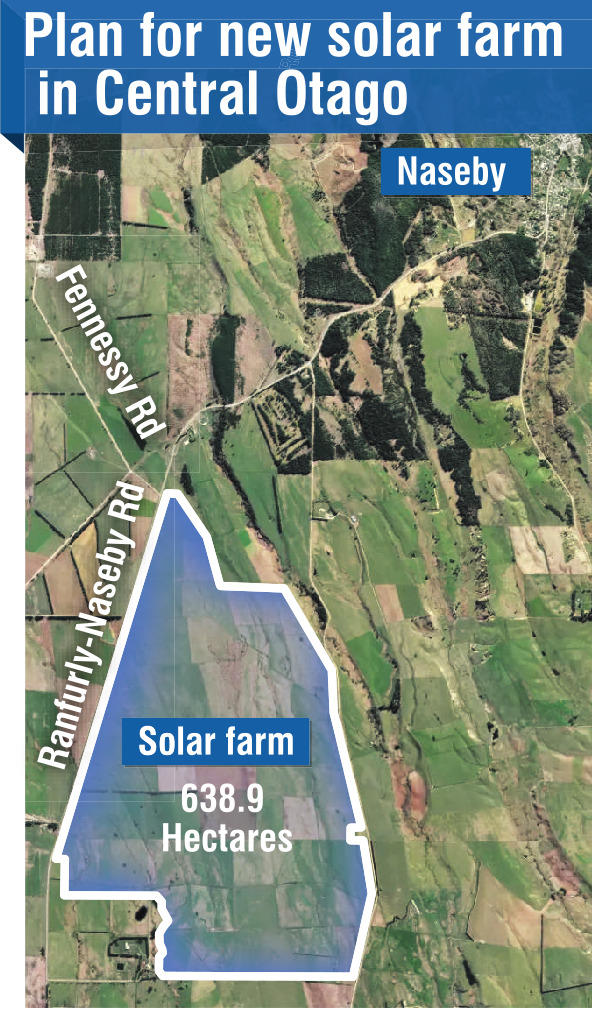
A solar farm on Maniototo pasture, expected to generate enough power to sustain 70,000 homes, has been given the go-ahead.
However, Real Dog Equipment Company owner and neighbour of the property where the solar farm will be established, Rose Voice, said she was trying not to cry while talking to the Otago Daily Times.
"It’s absolutely devastating. It’s the hardest thing I’ve had to do is have all my kids ring up because this is their family home and they’re just desperately worried about us."
The result was a surprise, Mrs Voice said.
"After the hearing we actually thought that the commissioners had asked the right questions and had looked into things the planner had omitted."
Those omissions included the effect on the Voices’ dog boarding kennel business, which Mrs Voice said will have to close.
"He’s [the Central Otago District Council planner] never set foot on our property. He’s not asked about our day-to-day operations yet [the consent says] the piling will be detrimental for animal health . . . over a million poles being banged three metres into the ground. We can’t keep the dogs."
The irony of being hailed on the Central Otago District Council website as one of the region’s success stories was not lost on Mrs Voice.
"We won their business award in 2018 and they advertised us as one of these success stories, yet they’re happy to have us close down."
There was no reference to their business or effect on the dogs they boarded but there was 12 pages on lizards, she said.
Mrs Voice said they had not given up fighting for their home and business yet.
The number of people contacting them and offering support meant they were considering setting up crowd-funding for an appeal to the Environment Court, she said.
On the other hand, self-employed electrician Andrew Blue said he was pleased the decision had been made in favour of the solar farm.
"I reckon it’s fantastic. It’s all going to be good. Anything that brings jobs into the area is good."
Mr Blue was born and raised in Ranfurly and had returned to the town after being away. He was confident the workforce required to build the solar farm would help boost Ranfurly.
"I know that they’re all saying they’re only going to be here for two years and just during the week and stuff, but they’ve got to have somewhere to live and they’re all going to buy petrol, get their cars serviced and eat, aren’t they?"
It was possible bringing workers to the area could ultimately boost the population, he said.
When the Maniototo irrigation scheme was being built the area fielded five rugby teams.
"A lot of people that worked on it stayed."
Long-term Ranfurly resident Karen Munro said she was torn about the decision as there were too many unknown factors.
While she understood the need for progress, the visual pollution of the solar panels and their eventual disposal worried her.
"It was the same thing with the Clyde Dam and look where you are with that, so who knows? It could be considered an asset but it could have been a better asset if they’d done what we had asked them to do, to pump water up the hills to irrigate the farmland . . . but that was too expensive."
Ms Munro was concerned about the long-term effect of the solar farm.
"Are we leaving a monstrosity of pollution for our grandchildren and great-grandchildren to clean up? But we don’t know the answer, because we haven’t gone through that long enough to know what ramifications are."
Maniototo relied heavily on tourism and having workers take up accommodation for up to two years would have a negative impact on that, too, she said.
Naseby resident Eric Swinbourne said he was concerned about the underestimating of traffic movement needed for the construction of the solar farm.
There would be 10-12 bus movements a day if every worker arrived and left by bus.
"Even when the road use is light . . . the CODC struggles to keep the Ranfurly-Naseby road in good condition."
There was also the concern about ice forming on the road due to the perimeter planting required in the consent conditions.
"Trees have already been removed from this road for this reason," Mr Swinbourne said.
Helios Energy co-founder and managing director Jeff Schlichting said the company was pleased to receive resource consent after three years of engagement with the community.
"Throughout the development process, Helios has listened carefully to community feedback and made a number of changes to the proposal."













